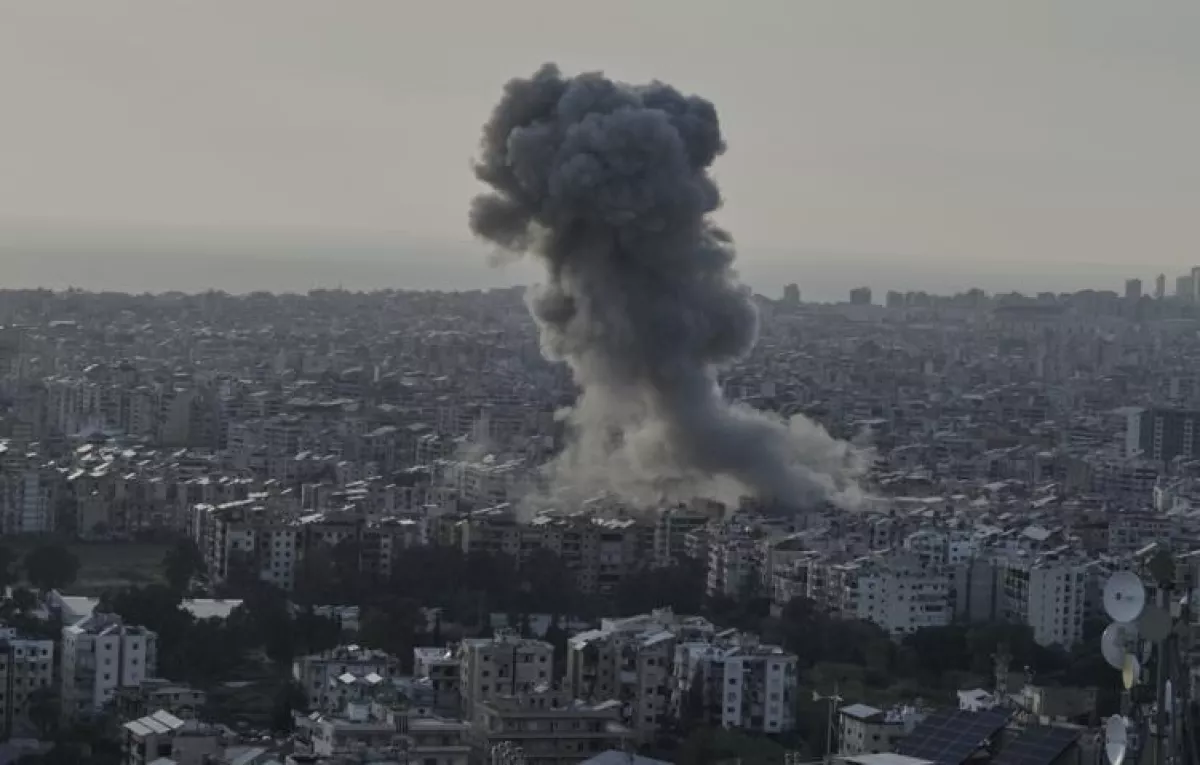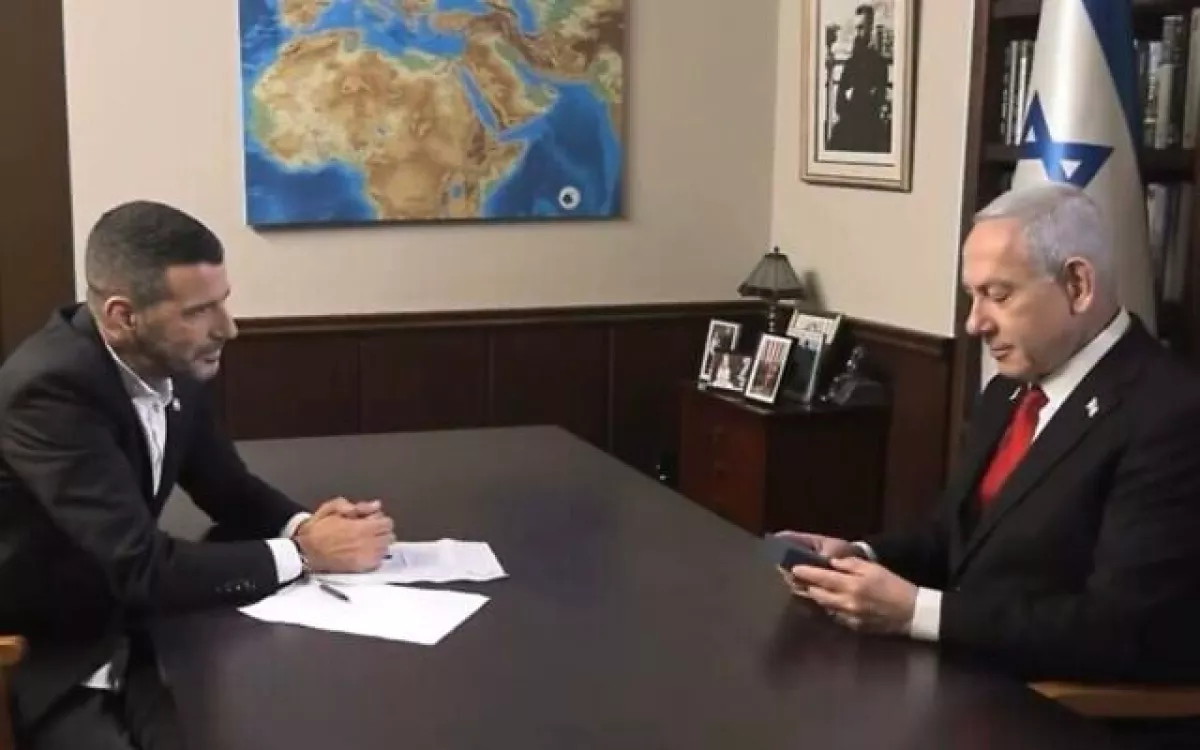Israel and Lebanon on the brink of a new war A powder keg in the south
Tensions in the Middle East are once again pointing toward a potential Israel-Lebanon conflict. Many observers have anticipated — and even predicted — a new wave of serious Israeli operations targeting Lebanese territory, particularly in the south, where Hezbollah maintains strong control. The situation is increasingly aligning with the dynamics of a direct Israel-Lebanon confrontation.
On November 22, multiple media outlets reported that the Israeli Air Force carried out strikes on ground targets across several Lebanese cities. The following day, November 23, the IDF announced a targeted strike against the head of Hezbollah’s General Staff in Beirut.

Just a day earlier, Lebanese President Joseph Aoun once again expressed the country’s readiness to enter negotiations with Israel under the auspices of the UN or the US. At the same time, he called for the withdrawal of the Israeli army from the occupied areas in the south of the country, despite the ceasefire agreement reached in November 2024. As he put it, the Lebanese army is ready to take control of these areas.
Today, it is obvious to everyone that the situation in the Middle East is being overseen directly by the United States. Consequently, whatever event occurs cannot happen without Washington being aware of it. Undoubtedly, there have been instances when one or another Middle Eastern party tried to play its own game and provoke escalation, but the US immediately demonstrated who the real geopolitical master of the region is — whether anyone likes it or not.
This is precisely why those who anticipate a new round of Israel-Lebanon confrontation base their view on the fact that the United States has already signalled its position in this context. At the very least, this is indicated by the recent forced cancellation of a planned visit to the US by the commander of the Lebanese army, which was meant to include meetings with high-ranking Pentagon officials. At the same time, American sources openly emphasise that official Beirut, despite all its rhetoric, has still not fully distanced itself from Hezbollah, in particular by failing to take meaningful steps toward disarming members of the group.
This shift in American policy has become evident over the past week. Previously, Washington had spoken positively about “our Lebanese partners continue to lead the way in ensuring the disarmament of Lebanese Hezbollah is successful,” citing specific progress in that direction. Now, Israeli sources are circulating information that a Sunday strike in Beirut was preliminarily coordinated with the American side.

According to the President of Lebanon, the strike on Beirut, which killed one person and injured 21, serves as evidence that Israel “has demonstrated its unwillingness to halt escalation in the region.” Aoun clarified that the Israeli attack, carried out on the anniversary of Independence Day, signals Israel’s refusal to stop its assaults on Lebanon and comply with international resolutions. In his view, this reflects a disregard for all efforts “to end the escalation and restore stability not only in Lebanon but across the region.”
These events have, as has happened periodically in the past, reignited discussions in various media about “Israel’s plans, under the pretext of security, to occupy southern Lebanon.” Supporters of this perspective consider it plausible, citing the borders described in the Tanakh (the Jewish Bible). Even Wikipedia notes that “to the north, the border included Mount Hermon and could run along the Lebanon mountain range”—a chain of mountains in Lebanon stretching about 160 km. According to Jewish sources, “although this territory is now part of Lebanon, it belongs to the land God promised to the Israelites,” with reference to the Book of Deuteronomy.
It is noted that “both Israeli military personnel and civilians need to firmly understand: the territory of southern Lebanon is, in fact, part of the Holy Land and has been granted by God in perpetuity to the people of Israel according to the Tanakh.” It is emphasised that this territory “was allocated to the tribe of Asher,” one of the tribes of Israel.
In this context, some encyclopaedias state that “the tribe of Asher was granted not only Galilee but also southern Lebanon, including Tyre and Sidon, where they apparently settled.”
Several Israeli sources have also highlighted an online conference held in the summer of 2024, organised by the “Awaken the North” movement, which advocates for the establishment of Israeli settlements in southern Lebanon.

In August 2025, Saudi Arabia, Qatar, Jordan, Egypt, the Arab League (AL), and the Palestinian Authority (PA) condemned Israeli Prime Minister Benjamin Netanyahu’s statement in an interview with i24News, in which he expressed a “deep” connection to the vision of a “Greater Israel.” Various sources noted that this concept “refers to Israeli borders expanded according to biblical or historical descriptions, in some cases including territories of Jordan, Lebanon, Syria, Egypt, Iraq, and Saudi Arabia.” In this context, Netanyahu stated that if “my parents’ generation had to create the state [of Israel], our generation, my generation, must ensure its continued existence. And I consider this a great mission.”
Thus, paradoxically, Middle Eastern geopolitics has merged with historical narratives, although some experts view the situation through a “spiritual-religious” lens. In any case, the situation between Israel and Lebanon remains extremely tense. It appears likely that yet another political delegation from US President Donald Trump will be dispatched to the region.








